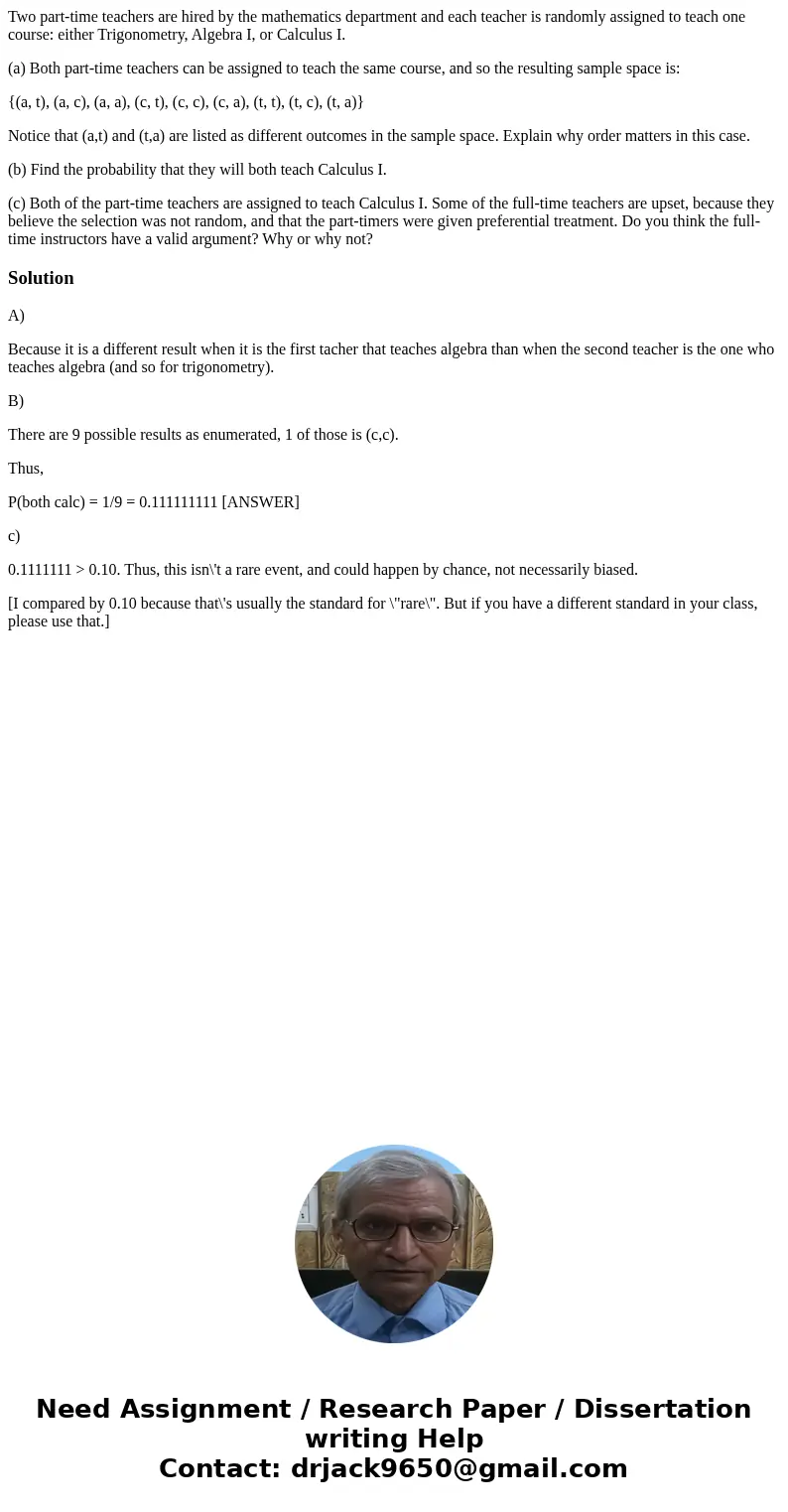Two parttime teachers are hired by the mathematics departmen
Two part-time teachers are hired by the mathematics department and each teacher is randomly assigned to teach one course: either Trigonometry, Algebra I, or Calculus I.
(a) Both part-time teachers can be assigned to teach the same course, and so the resulting sample space is:
{(a, t), (a, c), (a, a), (c, t), (c, c), (c, a), (t, t), (t, c), (t, a)}
Notice that (a,t) and (t,a) are listed as different outcomes in the sample space. Explain why order matters in this case.
(b) Find the probability that they will both teach Calculus I.
(c) Both of the part-time teachers are assigned to teach Calculus I. Some of the full-time teachers are upset, because they believe the selection was not random, and that the part-timers were given preferential treatment. Do you think the full-time instructors have a valid argument? Why or why not?
Solution
A)
Because it is a different result when it is the first tacher that teaches algebra than when the second teacher is the one who teaches algebra (and so for trigonometry).
B)
There are 9 possible results as enumerated, 1 of those is (c,c).
Thus,
P(both calc) = 1/9 = 0.111111111 [ANSWER]
c)
0.1111111 > 0.10. Thus, this isn\'t a rare event, and could happen by chance, not necessarily biased.
[I compared by 0.10 because that\'s usually the standard for \"rare\". But if you have a different standard in your class, please use that.]

 Homework Sourse
Homework Sourse